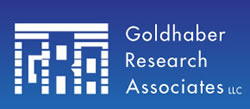If you buy a box of Kraft Mac & Cheese in the UK (the same Mac & Cheese that is sold in the U.S.), the following warning label appears on the package: Warning: This Product May Cause Adverse Effects On Activity And Attention in Children. This warning is required because the U.S. version of Kraft Mac & Cheese has artificial food dyes yellow #5 and yellow #6, which are proven to be linked to hyperactivity in children. The warning does NOT appear in the U.S.
If you want an answer to the question, Should food contain a warning, the simple answer is, "It depends on the food or food product." Please review the first four issues of this newsletter (March to June, 2009) for the criteria that I and other warning experts use to determine whether and how to warn. In short, we try identify the audience at risk, the nature ofthe hazard and its risk (assuming there is a hazard), whether codes and/or regulations suggest or require a warning, and if the potential hazard is known or unknown by the typical product user or consumer at the time of use. Lets now apply this theory to products with added sugar. That added sugar is a national hazard has been widely accepted by the medical and scientific community, as well as the public, however most people are not aware of the severity of the hazard who understand that too much sugar can lead to weight gain and various diseases like obesity, Type II diabetes and heart disease. For example, 1/3 of Americans and 20% of children are obese (at least 30 pounds over their desired weight). 25 million Americans are diabetic and another 80 million are prediabetic; ¼ million Americans die every year due to diabetes and disease related to diabetes (about 10% of the annual U.S. deaths). This costs our health care industry about $175 Billion/year in direct costs and another $70 billion in lost productivity. THAT AFFECTS ALL OF US.
The risk of death from a heart attack or stroke is 2-4 times higher among diabetics. According to a recent Harvard study, 25,000 deaths/year are due to just sugary drinks. I am sure most consumers know, if not the statistics above, the general conclusion from these statistics, that SUGAR IS BAD FOR YOU and can help make you sick. My contention here, however, is that people don't know how bad is bad both in general and with their own personal diets. That is because the food industry has not communicated in clear language the exact natore of the risk of eating added sugar. We consume 80-90 grams of added sugar/day. If I told you that meant 20-25 teaspoons of sugar, /day instead of telling you the grams, and that this amount of sugar is THREE TIMES the amount/day you should consume as a maximum (remember, 0 grams is needed), it might just get your attention. If I started to list the number of teaspoons of added sugar in all products, for example there are 10 teaspoons in a 12 Oz. Coke or one Snickers Bar or that one energy drink has 15 teaspoons of sugar, that might just get your attention.
Should there be a warning on products with large amounts of added sugar? When you consider that we have a hazardous condition know to a manufacturer but not necessarily to the consumer (again, see my criteria for a warning in the newsletters cited above), the answer is without a doubt, "YES." What should that warning actually say? Warning: This product contains a significant amount of added TEASPOONS of sugar which studies have shown is linked to Obesity, Type II diabetes cardiovascular disease and certain cancers. Consult your physician about an appropriate diet with a reduced amount of added sugar. I am all about giving consumers "informed choice." This warning will do that.
Feel free to pass this issue of the Goldhaber Warnings Report on to any friend or colleague.
Dr. Gerald M. Goldhaber, the President of Goldhaber Research Associates, LLC, is a nationally recognized expert in the fields of Political Polling and Warning Label Research. His clients include Fortune 500 companies, as well as educational and governmental organizations. He has conducted hundreds of surveys, including political polls for candidates running for U.S Congress, Senate, and President. Dr. Goldhaber also served as a consultant to President Reagan's Private Sector Survey for Cost Control.
©Copyright - All Rights Reserved
DO NOT REPRODUCE WITHOUT WRITTEN PERMISSION BY AUTHOR.











